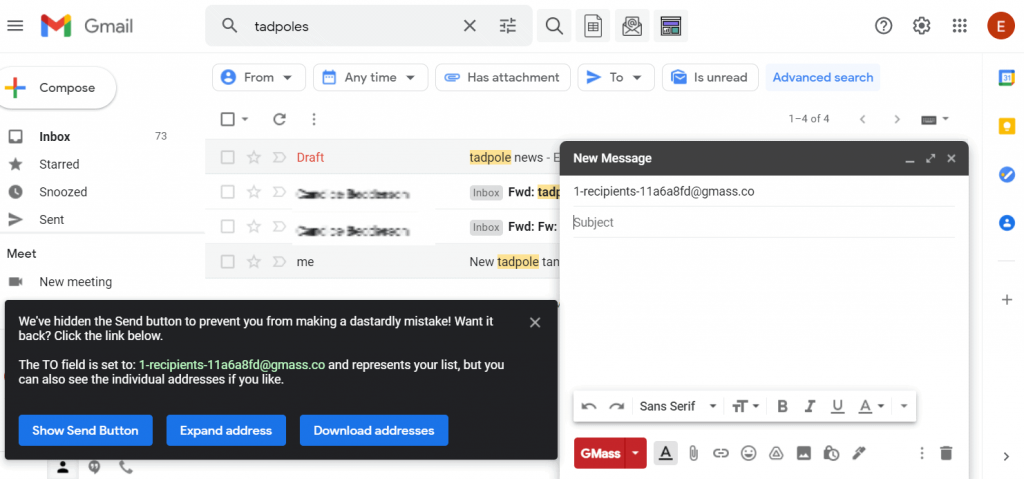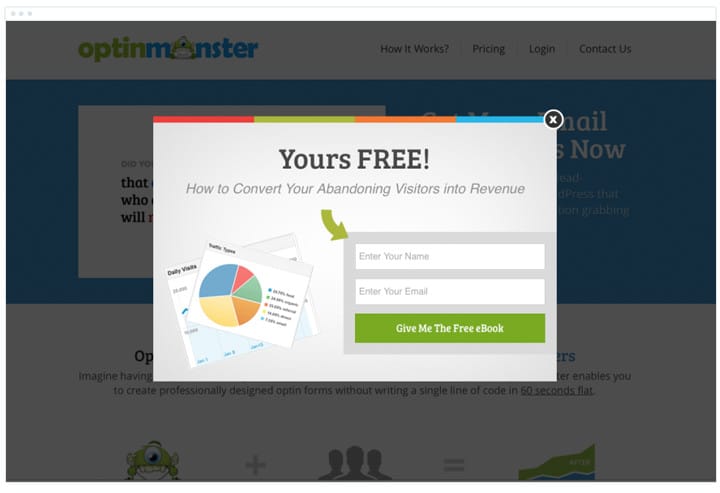Excellent Methods To Choosing An Email List Website
Excellent Methods To Choosing An Email List Website
Blog Article
What Are The Things I Need To Consider When Buying An Email List For A Cpa?
It's important to consider several aspects when purchasing the CPA email list. This will guarantee that the list you buy is top-quality, in compliance with legal requirements and applicable to your company's goals. Here's what you need to take into consideration: 1. Data quality and accuracy
Source of information: Examine the sources of the lists. The most reliable suppliers typically gather information from directories for professional use, databases, and trade associations. Avoid lists generated by scraping data, or using unreliable methods, as they might contain outdated or inaccurate data.
Verification: Ensure that the list of email addresses has been recently verified. This will lower bounce rates and also ensure that the email addresses are legitimate. As CPAs frequently change firms or jobs, you should ask how often the list has been changed.
Segmentation and Filters: A good CPA list should offer segments, for example location (city, state, country) or industry specialty (e.g. auditing, taxation or financial planning) and years of experience or firm size. Your advertising campaigns are more relevant through targeted specific targeting.
2. Legal Regulations
Data Privacy Laws Ensure that your email list complies the relevant local laws and regulations, such as California Consumer Privacy Act, General Data Protection Regulation or General Data Protection Regulation. Lists should include email addresses that have been obtained legally, with proper consent.
Compliance with the CANSPAM Act The list of addresses used in U.S. commercial email campaigns should be compliant with the CANSPAM Act. This means providing opt-out options and not using misleading subject lines or other content. Non-compliance with the law can be punished with fines and legal concerns.
Sign up for Consent. Make sure you have email addresses via opt-in consent, i.e. recipients agreeing to receive emails. This lowers the likelihood of receiving spam complaints. Also, it increases engagement.
3. Provider Reputation
Verify the reputation of the provider. You can evaluate the previous experiences of customers by reading reviews, case studies, and testimonials. Established companies are more likely to have precise information.
Transparency. Providers need to be open about the method by which they collect their data and when they update it. If the company is unable to clearly explain their methods, it's an indication of fraud.
Customer support is crucial It is essential to have solid customer support when your campaign needs assistance in customising your list and troubleshooting issues, or understanding compliance regulations. Good support can save time and energy throughout the process of launching your campaign.
4. Cost and ROI
Pricing Models. Different companies offer various pricing models. While some charge per-contact while others charge an annual subscription or a flat cost. Review costs against ROI and weigh price against quality.
Find out about the policy on refunds. If you find that a significant number of emails are incorrect or untrue, you may be entitled to a full or partial reimbursement. A guarantee can provide assurance.
Cost in comparison to. Value: Don't focus only on price. The cheapest lists might look attractive, but they could have low engagement or bounce rates if of poorer quality. You should consider lists that provide precision in data and segmentation.
5. Use and Ownership of Data
Purchase the list one time or buy it multiple times. Although a list for single-use is more affordable, having your own list lets you run longer-term campaigns.
Shared and exclusive. Exclusive lists: Determine whether the list of email addresses is exclusive to you or shared with multiple buyers. Shared lists: Determine if this email list belongs to you exclusively or is shared with multiple buyers. Shared lists can lead to people becoming exhausted if they've received a lot of marketing emails.
6. Data Integration and Format
CRM Compatibility. Make sure the list is delivered in the format of a CSV or Excel format. This will allow for easy management of data and its import.
Usability: Assess the ease with which data can be categorized and controlled when integrated in your software. An organized list will make personalization and targeting more effective.
7. Ethical Concerns
Relevance of the content CPAs are often busy professionals. It's therefore essential to send them relevant and valuable content. Beware of sending emails that are irrelevant and could harm your brand or result in spam complaints.
Avoid sending too many emails Limit the number occasions you send your contacts an email. Insufficient communication can result in unsubscribes or complaints about spam, which can negatively affect your sender's reputation.
Conclusion
If you're buying an CPA mailing list, make sure that you prioritize the data's quality as well as compliance with legal requirements, and the reputation of the service provider. This will guarantee that it is a worthwhile investment. Effective segmentation and ethical practices can increase the amount of engagement and ROI and help maintain a positive image of your business. Check out the top cpa email list for more guide.
What Should I Think About Prior To Buying An Urgent Care Email List?
To determine whether an urgent care email database is efficient, accurate, compliant and appropriate for your marketing objectives, you must evaluate various aspects. Here are key considerations. Data Quality and Accuracy
The source of data - Make sure that data collected by the provider is from reliable sources such as medical associations and databases on healthcare. Avoid lists made using scraping or other unreliable methods since they may contain outdated or incorrect data.
Verification process: Confirmation that the list of email addresses is updated regularly and verified. A reliable service provider will employ a rigorous process of verification to remove invalid or out-of-date email addresses. This increases the likelihood of delivery and reduces bounce rates.
Segmentation and Targeting The segmentation should contain information such as the area of the clinic (e.g. city or state, or even a region) and its size and any particularizations (e.g. diagnostics or pediatrics) and the roles of important decision-makers (e.g. doctors and practice owners, etc.). The lists you make can improve the outreach of your organization by boosting engagement.
2. Legal Regulations
Data Privacy Laws : Ensure your list complies the relevant laws on data protection for example, in Europe the General Data Protection Regulation, in the U.S. the California Consumer Privacy Act and any other local regulations. This means that any email addresses collected should be processed with the right consent and handled in a legally-sound manner.
CAN-SPAM Act Compliance: In the U.S., your email marketing campaigns must be in compliance with the CAN-SPAM Act. This means you have to include an opt-out option, refrain from using misleading subject line as well as provide your physical address when you send emails. Failure to comply could result in fines and damage your brand's reputation.
Opt-in Consent: Make sure whether the email addresses on the list are subject to explicit opt-in consent. This means that the recipients have agreed for the receipt of marketing emails from third-party companies. This minimizes the risk of legal issues.
3. Provider Reputation
Established Providers: Select a service provider that has an established track record for providing compliant and high-quality lists. Look through testimonials, reviews or case studies from past customers to assess the company's reliability and satisfaction with their customers.
Transparency. The provider should provide full transparency regarding the source of their data and the frequency of updates. It could be an indication of poor quality data if the company is unable to clearly explain the method of collecting data.
Customer Support: A dependable customer support team is essential for those who require help with technical issues, list customization or compliance. A customer-friendly service will help you maximize the value of your email database.
4. Costs and Return on Investement (ROI).
Pricing Models: Email list service providers generally have different pricing models, such as pay-per-contact or flat charges. Pricing models should be compared to your marketing budget, and ROI expectations. Check the cost and quality of the list with relevant information.
Policy on Refunds or Replacements A reputable supplier usually offers an exchange or refund policy in the event that an important part of email addresses are invalid or is not deliverable. Make sure you read the details of this policy prior to purchasing.
Value for money: Don't go with the most affordable option. Instead, opt for lists that are precise and feature precise segmentation. By investing in lists of high quality will increase engagement and yield a higher ROI.
5. Use, Ownership of Data and use
Single-Use vs. Multi-Use: Determine if you can utilize the list only for one campaign or multiple times. Lists that allow multiple uses provide better value, especially in the event that you are planning to conduct ongoing outreach campaigns.
Exclusive vs. Shared Lists: Determine if this list is exclusive for your business or it is shared by other buyers. Shared lists could lead to list fatigue since recipients could receive multiple marketing messages. Engagement rates will decrease.
6. Data Integration and Format
CRM Compatibility: Make sure that the list of emails is sent in a format that works with your customer relationship management (CRM) or email marketing platform, for example CSV or Excel. This will ensure a smooth integration, and allow you to launch your campaign quickly.
It should be simple to manage and segment it according to your requirements. An organized list makes targeting and personalization more effective.
7. Ethical Aspects
Content Relevance: Professionals in Urgent Care are busy and often occupied Therefore, your message must be informative and useful. Send messages that are tailored to their specific needs. Unsuitable content can damage your brand's image and decrease engagement.
Be aware of how often you email. Sending unsolicited emails or over-emailing could result in spam complaints and can damage your reputation as an emailer.
Conclusion
Be sure to consider the accuracy of the data, the legal compliance, and the reputation of the company you choose to purchase an email list for urgent help. Check that the list is segmented and updated regularly and in compliance with privacy laws. Utilizing a well-targeted, high-quality list and delivering content that is relevant, you will increase the engagement of your customers and boost your return on investment. Follow the recommended urgent care email list for more recommendations.